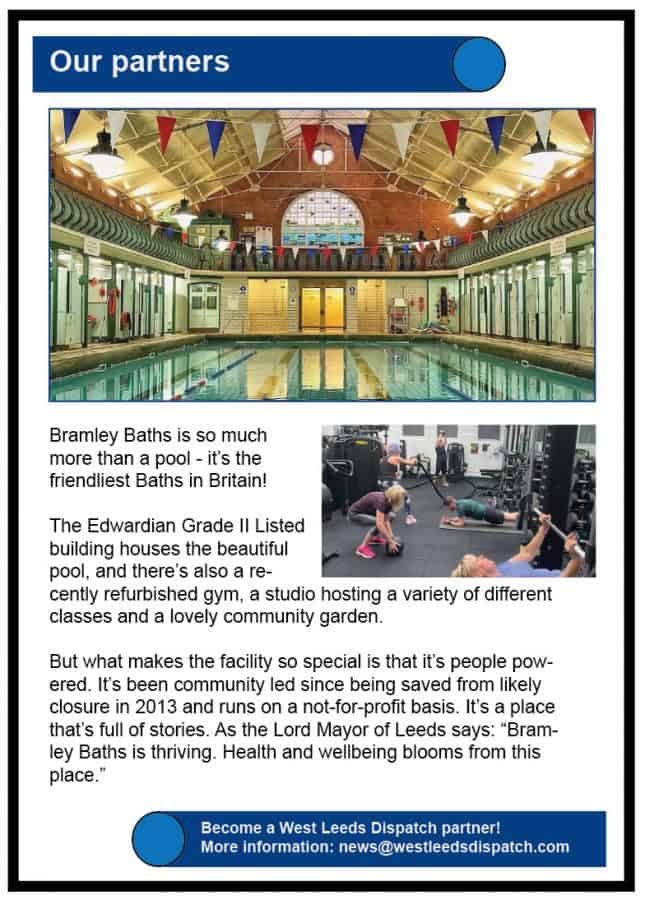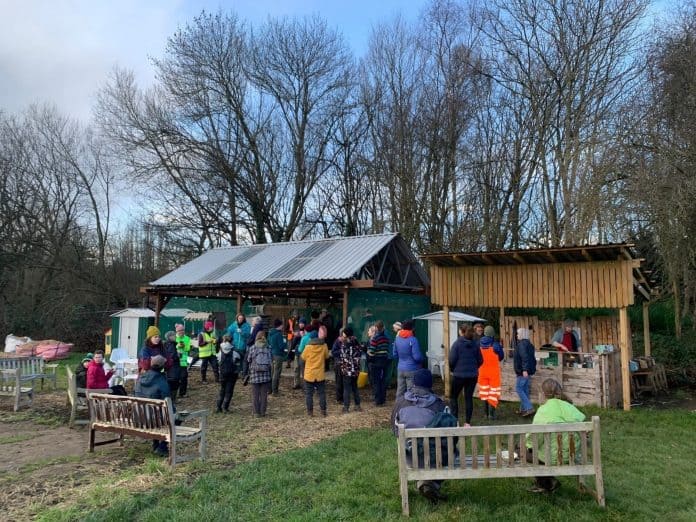By Noelle Williamson
Reaching retirement age can take some getting used to: an empty desk and an empty nest (unless you’re up to your elbows in grandkids).
Hips and brain can be a bit creaky; the occasional glimpse of mum or dad in your own reflection; the bus pass (and bus pass photo!); more ‘me time’ than you know what to do with – and that’s Us Time when two of you retire together!
However much you were looking forward to retirement, when you’re accustomed to the pace and structure of a working week, the abrupt shift down the gears is unsettling.
Say goodbye to full-time days, permanent nights and shift rotas; to part-time, job share and temping; to hybrid and remote working; to the ‘freedom and flexibility’ of zero-hours contracts and freelancing. Job title, function, status, dress code all gone. Bin the CV. Delete Linked-in. No more busing or driving in, clocking in or logging in. No more pressure, gossip or internal politics. No more fire alarm tests! Marvellous!!
And it will be, at first. And again, not long after. For a while in between, though, you might experience a small – probably very small – a frisson – just a hint of – existential crisis. There, you see, it’s hardly worth mentioning.
Symptoms present as questions, and range from mild: What am I going to do with all these hours and days? Through moderate: Who am I, if not a (insert appropriate term)? To severe: O!M!G! I’m officially old! How much time have I got left?
Alarming as this might seem, be assured that it is merely a natural, temporary phase: a major life change has raised the spectres of every cliché you ever heard, read or watched before the age of twelve, about toothless crones with bad hair; crabbit old geezers with smelly dogs; harmless old dears; doddery old men; domestic tyrants; helpless invalids; witches and wizards, good, bad and ugly (though wizards always have great hair).
So much great literature and so many classic folk tales have come down from when average life expectancy was around 45, and keeping your hearing, sight and all your teeth was more luck than judgement.
Shakespeare, the Brothers Grimm and Dickens left us stories from their own times, but also reached back through centuries and across land and sea for history, legends and folk tales that would speak to their contemporaries.
Those stories also speak to us because we are essentially no different from our ancestors, except in one significant respect: compared with even recent ancestors, most of us live to be downright ancient.
Furthermore, with the advantages of education, healthcare, pensions, decent housing, community care and bus passes, retirement is becoming a misnomer.
‘Retirement’ affords us the time to look outward again, to make new friends and enjoy family; to slow down and savour books, music, gardens and walks; and to develop talents and explore new interests.
Now we’re in our sixties, there’s no denying that there are more years behind us than ahead of us, but as long as we’re busy living now, how can we possibly have one foot in the grave?
Easing carefully back from mortality, our questions – of identity and the business of living fully – remain. While there are several senior citizen models to consider, from silver fox to the foot/grave motif, let’s also step back from metaphor and folk tales to consider simple adjectives: The current full retirement age is 66 (rising to 67). At 66, am I old? Or elderly?
According to an online dictionary, elderly can be defined as
- over 65 (i.e. before you qualify for your pension!)
or
b. a polite way of saying old.
This begs the question: Why do we need ‘a polite way of saying old’? Seriously. How is old a rude word to be avoided?
Here, I must express my deep appreciation for the way online advertisers anticipate my every need at this difficult age.
It’s heartwarming, the way all those adorable little cookies keep offering physiotherapy clinics, health insurance, and help with making a will or setting up power of attorney… Ah, I feel quite tingly all over.
OK, I exaggerate, but you could live to regret typing gentle aerobics or chair yoga into a browser, or clicking on an over-55 dance fitness link.
Cookies underpin the self-image that search engines feed us; an image, I would argue, skewed more to advertisers’ bottom lines than our wellbeing.
An account holder over the age of 65 (55?) offers two promising lines of persuasion: a cultural predisposition to anticipate attenuating powers; and/or a disposable income. Both might be exploited profitably by encouraging a sense of an imminent sell-by date.
Our searches generate cookies, which accumulate into a sort of mosaic of preferences, a profile which directs search engines to retrieve material consistent with those preferences.
It follows that if you research health issues or services related to older citizens, you may observe a shift in content in your feed to match.
Once that shift starts, a search for ways of staying fit and meeting likeminded people will generate great local information but may include a sprinkling of cheerful promotions to address mobility problems or improve bone density.
If you click on links for older walking groups, expect a lean through outdoor clothing and walking aids towards accident insurance, or a range of safe, luxury cruises and boutique special interest tours, all featuring stylish 60-somethings, and then travel insurance.
It’s marketing, which is fair enough, but a steady drip feed of supplements, serums and cures for what ails you, all wrapped up in the-end-is-nigh admin gets a bit wearing. Declining non-essential cookies is always advisable, and it would be harmless fun to dream up some off-the-wall searches to confuse the cookies. Necromancy retreats, anyone? Fire-eating courses? Release your inner Silver Surfer!!
So, back to LIVING, via What am I going to do? and its fraternal twin, Who am I? If you’re not a Leeds native or simply don’t know what your neighbourhood has to offer during office hours, then typing Armley, Leeds, or Wortley, Leeds, for example, into Facebook will open your eyes to local organisations, groups, venues and services.
If you don’t see what you want, e.g. line dancing, try typing line dancing into your phone, and watch line dancing near me/Bramley/Pudsey/classes pop up. At your local community centre or parish hall, you could find coffee mornings, breakfast or lunch clubs, craft sessions, art, memory cafés, knitting, boardgames, sewing, a men’s group, a women’s group, a choir, a walking group, even a theatre group, and yetmore besides. At most groups, someone will come and rescue a slightly nervous looking newcomer and explain what’s what: there’s no pressure to sign up, but you’ll be welcome to join in for a taster.
The West Leeds Dispatch what’s on section carries comprehensive local listings for exhibitions and shows, concerts, festivals, library events, sport fixtures, and plenty more. Most of them on bus routes; you can open it in your browser to find something happening that same day, check buses, take your travel card and head out for an adventure.
If you want to roll up your sleeves and get your hands dirty, volunteers at Kirkstall Valley Farm, Hollybush, Bramley Baths and Bramley Care Bears grow plants and food, or help people tackle their gardens. (As you’d expect, many have Facebook pages, if not their own websites.)
And while you’re helping and learning, you could apply for an allotment, and start planning. If you’re looking for responsibility and purpose, without a major time commitment, most group leaders and support teams in parish and community venues are volunteers, and would welcome another pair of hands.
In fact, it’s the same in every neighbourhood and district throughout Leeds: for museums, theatres and independent cinemas; and health, sport, social and cultural organisations, the commitment of volunteers is critical to the quality and reach of their work, and the cultural life of this city.
If you look, it’s remarkable how many of those volunteers are your – our – age!
Young was a great adventure in new places with new friends, and you’ll never be that slim or innocent or foolish again. Young was living in the moment, knowing that your life was finally beginning. Also not knowing what you didn’t know, and only finding out when it really, really mattered.
Becoming aware of an array of steep learning curves fanned out in front of you, and feeling that you had to tackle them all at once if you were going to get by. How to make friends. How to earn a living. How to manage money. How to be yourself. How to take care of yourself. How to recognise The One. How to handle success. How to recover from failure.
Young was a ride with new friends and a random dog, crammed into an open-top car, no seatbelts, a dodgy fuel gauge, radio on loud, and 50/50 odds on whether you’d all get there together, or whether you’d end up on the hard shoulder with the random dog and your thumb out.
Old is another adventure, but one you start grounded in life experience and self-knowledge, with people around you who know you but like you anyway.
Steep learning curves aren’t exclusive to youth but, by our age, most of us know the wisdom of, “I’ll cross that bridge when I come to it.” Though I personally prefer Irving Berlin’s version: There may be trouble ahead, but while there’s music and moonlight and love and romance, let’s face the music and dance!
Elderly – old! – is a ride in a much-travelled camper van with friends and your own dog. Food and drink in the fridge. Statins and BP meds in the dash.
If you get What3Words wrong, you’ll park up, sit out under the stars together, agree who’s sharing which bunk, and set off again tomorrow, crumpled and bug-eyed from whispering in a shared bunk half the night and listening to snores for the other half.
You may not be entirely sure about your ultimate destination, and you’ll probably need the AA if the dicky clutch quits, but you’ve got motorway services on the satnav and no-one gets left on the hard shoulder.
Sponsored content


